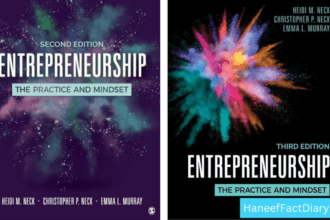Are you striving to achieve success, but find that challenges and setbacks often hold you back? At times, these roadblocks can leave us feeling defeated and disheartened, but it’s important to remember that they’re a normal part of life. The good news is that cultivating a growth mindset and resilience can help you overcome these obstacles and reach your potential for success. In this article, we will explore practical strategies to help you build a growth mindset and resilience that will equip you with the skills to overcome challenges and thrive in all aspects of life.
Key Takeaways:
- Cultivating a growth mindset and resilience is essential for achieving personal and professional success.
- Developing a growth mindset can help improve your mindset and boost your potential for success.
- Building resilience enables you to bounce back from setbacks and challenges, allowing you to thrive in the face of adversity.
- Cultivating grit is the ability to persevere in the face of obstacles and is a critical component of resilience.
- Embracing continuous learning and growth can help you foster a growth mindset, enhance strategic thinking and decision-making skills, and cultivate innovation and adaptability.
Understanding the Power of a Growth Mindset
At its core, a growth mindset is the belief that one’s abilities and intelligence can be developed over time through dedication and hard work. Those with a growth mindset are more likely to take on challenges and persist through difficulties, as they view setbacks as opportunities for learning and growth.
Developing a growth mindset is essential for personal and professional development. By embracing the belief that progress and improvement are achievable, we pave the way for greater success and fulfillment. Fortunately, anyone can learn to develop and improve their mindset, regardless of their age or background.
One effective way to start developing a growth mindset is by changing our inner dialogue. Instead of telling ourselves that we’re not capable of something, we can reframe our thoughts by acknowledging the potential we have to learn and improve. We can also focus on our progress and achievements rather than fixating on our shortcomings.
In addition, seeking out challenges and opportunities for learning can help us develop a growth mindset. When we challenge ourselves and step outside of our comfort zones, we broaden our horizons and develop new skills that build confidence and resilience.
Overall, cultivating a growth mindset is an ongoing process that requires self-reflection, dedication, and a willingness to embrace change. But by doing so, we can unlock our full potential and achieve greater success in all aspects of our lives.
Read more about this: Entrepreneur’s Mindset: Key to Success Unlocking
Fostering Resilience: Building Inner Strength
In today’s fast-paced world, life can throw challenges that can leave us feeling lost and deflated. Building resilience helps us bounce back from setbacks and stay strong through tough times. In this section, we will explore some effective ways to build resilience and cultivate inner strength.
Develop a Positive Attitude
Building a positive attitude can help us bounce back from setbacks quickly and effectively. Positive self-talk, focusing on strengths instead of weaknesses, and seeking constructive feedback helps us maintain a healthy perspective and stay resilient.
Cultivate a Support Network
A robust support network helps us stay resilient and navigate challenges confidently. Talking to friends, family, or a mentor can help us gain new perspectives and foster positive emotions.
Develop Coping Mechanisms
Finding healthy ways to cope with stress and anxiety is essential for building resilience. Engage in activities that you enjoy, pursue hobbies, or take up meditation to cultivate your inner strength and stay calm.
Learn from Failures
No one can avoid mistakes or failure, and it’s important to learn from these experiences. Learning and growing through failures can help us build resilience and remain optimistic about the future.
By implementing these strategies, you can cultivate resilience and inner strength, preparing you to tackle challenges in life head-on. Remember, building resilience is a process – it takes time and effort, but the result is a strong foundation that can withstand life’s uncertainties.
Embracing Continuous Learning and Growth
At the heart of a growth mindset is the willingness to learn and grow continuously. Learning keeps our minds active and engaged, leading to personal and professional development. The best way to cultivate a growth mindset is to embrace continuous learning and strive for personal growth.
Here are some practical tips to integrate lifelong learning into your daily life:
- Read books, articles, and blogs about topics that interest you.
- Join discussion groups or attend seminars and workshops.
- Take courses or pursue certifications that align with your values and career goals.
- Challenge yourself to try new things and explore new interests.
- Stay up to date with industry news and developments.
Remember, continuous learning is not just about acquiring knowledge and skills, but also about developing a growth mindset. Embrace new challenges, learn from your mistakes, and seek feedback to improve. By making learning a lifelong habit, you will cultivate the mindset for personal and professional success.
Developing Strategic Thinking and Decision-Making Skills
When it comes to achieving success, having strong strategic thinking and decision-making skills is crucial. These skills will enable us to assess situations, make informed choices, and take decisive action. However, building these skills requires effort and intentional practice.
One way to develop strategic thinking skills is by regularly engaging in activities that challenge your mind and encourage you to think critically. This could include playing strategy-based games such as chess or working on complex problem-solving puzzles. By doing so, you can train your brain to approach challenges from multiple perspectives and identify creative solutions.
Another way to enhance decision-making skills is by seeking out diverse perspectives. By gathering input from a diverse group of individuals, we can gain a more comprehensive understanding of the situation and evaluate options more effectively. Additionally, conducting thorough research and gathering relevant data can help us make more informed decisions.
Finally, it is important to cultivate a growth mindset when it comes to decision-making. This means embracing the potential for failure as an opportunity for learning and growth. By reframing mistakes and setbacks as learning experiences, we can become more confident in our decision-making abilities and better equipped to make informed choices in the future.
Read more about this: Enhance Your Strategy with Decision-Making Skills
Cultivating Innovation and Adaptability
In today’s fast-paced world, being innovative and adaptable are critical skills for success. Innovation allows us to take advantage of new opportunities and stay ahead of the curve, while adaptability enables us to navigate challenges and uncertainties.
At our core, we believe that everyone has the potential to be innovative and adaptable. By embracing a growth mindset and fostering a culture of experimentation, we can unlock our creativity and develop new ways of thinking.
Here are some techniques to cultivate innovation and adaptability:
- Think outside the box: Challenge yourself to see problems and situations in new ways. Try brainstorming multiple solutions, even if they seem unconventional.
- Embrace failure: Don’t be afraid to experiment and make mistakes. Failure is often a stepping stone to greater success.
- Be curious: Ask questions and seek out new information. Curiosity fuels creativity and encourages innovative thinking.
- Collaborate: Work with others to generate new ideas and perspectives. Collaborating with diverse groups can lead to breakthrough innovations.
- Stay flexible: Be open to change and willing to pivot when necessary. Adaptability allows us to respond quickly to changing circumstances.
By incorporating these strategies into our daily lives, we can develop the skills we need to be successful in any situation. Remember, cultivating innovation and adaptability is an ongoing process, so don’t be afraid to try new things and embrace new challenges.
Read more of this: Embracing Innovation and Adaptability for Growth
Grit: Persevering Through Challenges
Overcoming challenges is an essential part of personal and professional growth. It requires something beyond mere talent and skill: grit, the determination to push through adversity and persist in the face of obstacles. Developing and enhancing grit can give you the strength and resilience you need to overcome challenges and achieve your long-term goals.
How can you develop grit? Start by cultivating a growth mindset and focusing on the process of growth rather than just the result. Embrace challenges as opportunities for growth and learning, and don’t let setbacks discourage you. Practice self-compassion and remind yourself that making mistakes is part of the learning process.
Another important aspect of developing grit is maintaining a sense of purpose and passion for what you’re doing. When you have a clear sense of why you’re working towards your goals, it’s easier to stay motivated and overcome obstacles. Set realistic goals for yourself and break them down into smaller, manageable steps that you can take on a daily or weekly basis.
Remember that developing grit takes time and effort. It’s not something that happens overnight, but it is something that can be built over time through consistent practice and effort.
Read more of this: Building Grit & Overcoming Challenges Guide
Enhancing Self-Awareness for Personal Growth
Self-awareness is the foundation of personal growth. It is essential to know yourself, your values, strengths, weaknesses, and emotions to cultivate resilience, a growth mindset, and positive relationships with others. When you’re more self-aware, you have a better understanding of the impact you have on yourself and others, helping you to take responsibility for your actions and make informed decisions.
There are many practical exercises you can do to enhance your self-awareness. One of these exercises is journaling, where you write down your thoughts and feelings about different experiences. This helps you to reflect on your emotions, thoughts, and behaviors, making it easier to identify patterns that may be holding you back from personal growth. Additionally, practicing mindfulness meditation can help you build self-awareness by improving your ability to pay attention to the present moment and be aware of your thoughts and emotions.
Self-awareness also contributes significantly to cultivating a growth mindset and resilience. By being self-aware, you’re more aware of your limitations and areas that need improvement. You’re more open to learning, taking risks, and seeking help from others, making it easier to overcome challenges and setbacks.
Read more of this: Self-Awareness and Continuous Learning – Unleash Growth
The Benefits of Enhancing Self-Awareness
| Benefit of Enhancing Self-Awareness | Description |
|---|---|
| Better decision-making | When you’re more self-aware, you can make decisions that align with your values, goals, and strengths, leading to better outcomes and less regret. |
| Improved resilience | Self-awareness enables you to recognize and manage your emotions better, helping you to handle difficult situations with calmness and resilience. |
| Enhanced self-confidence | By being more self-aware of your strengths and weaknesses, you can capitalize on your positive attributes and work on improving your weaknesses. |
| Positive relationships | Self-awareness helps you to communicate more effectively and establish better relationships with others by understanding their perspectives better. |
Ultimately, enhancing self-awareness takes time, but the benefits are worth the effort. By practicing self-awareness, you’re taking the first step towards personal growth and development, cultivating a growth mindset, and building resilience.
Conclusion
We hope that this article has given you valuable insights and practical strategies for cultivating a growth mindset and building resilience. By embracing continuous learning, fostering innovation and adaptability, developing strategic thinking and decision-making skills, and enhancing your self-awareness, you can equip yourself with the tools to overcome challenges and achieve long-term success in all aspects of your life.
Remember, building resilience takes time and effort, but the payoff is well worth it. By consistently practicing these strategies, you can develop the inner strength and growth mindset necessary to navigate life’s ups and downs with confidence and optimism. Together, let’s embrace the challenge of continuous growth and development, and thrive in all aspects of our lives.
FAQ
What is a growth mindset?
A growth mindset is the belief that our abilities, intelligence, and talents can be developed and improved through dedication, effort, and continuous learning. It is the belief that we have the potential to learn and grow and that our abilities are not fixed or limited.
How can I develop a growth mindset?
Developing a growth mindset involves embracing challenges, persisting in the face of setbacks, putting in effort and hard work, seeking feedback, and learning from failures. It requires being open to new ideas and perspectives and believing in your ability to improve through effort and learning.
How can I build resilience?
Building resilience involves developing the ability to bounce back from adversity, setbacks, and challenges. It requires cultivating an optimistic mindset, practicing self-care, seeking support from others, and maintaining a sense of purpose and meaning in life.
How can I foster continuous learning?
Fostering continuous learning involves nurturing a curiosity for knowledge, seeking out new experiences, being open to different perspectives, and actively seeking opportunities for growth and development. It requires setting learning goals, reflecting on experiences, and staying engaged and motivated to learn.
How can I enhance my strategic thinking and decision-making skills?
Enhancing strategic thinking and decision-making skills requires developing the ability to analyze situations, think critically, consider different options and perspectives, and make informed choices. It involves gathering relevant information, evaluating alternatives, and assessing potential risks and rewards before making decisions.
How can I cultivate innovation and adaptability?
Cultivating innovation and adaptability involves embracing change, thinking creatively and outside the box, being open to new ideas, taking calculated risks, and being flexible in your approach. It requires being comfortable with uncertainty and being willing to adapt and adjust to new circumstances and challenges.
How can I develop grit and persevere through challenges?
Developing grit requires a combination of passion, perseverance, and resilience. It involves setting meaningful goals, staying committed to those goals despite setbacks and obstacles, maintaining a positive mindset, seeking support when needed, and learning from failures to keep moving forward.
Why is self-awareness important for personal growth?
Self-awareness is important for personal growth because it allows you to understand your strengths, weaknesses, values, beliefs, and emotions. It helps you make better choices, set realistic goals, and build positive relationships. Self-awareness also enables you to identify areas for growth and development and take proactive steps towards self-improvement.






